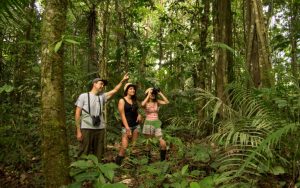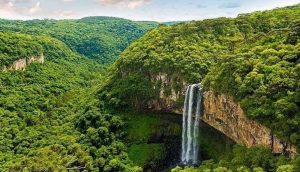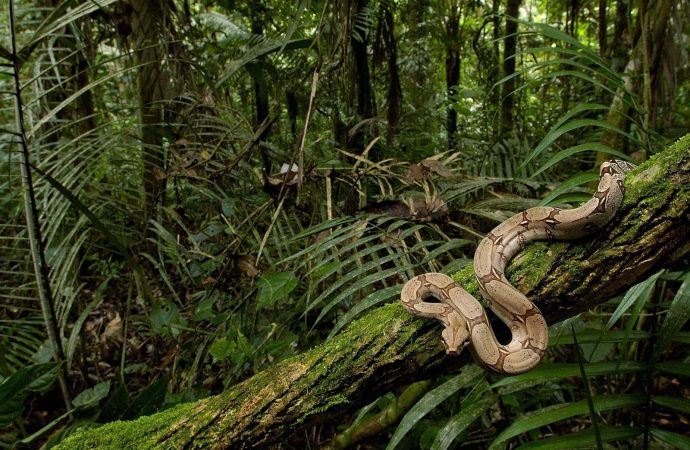Introduction: Jungles have long captivated the human imagination, with their dense foliage, diverse ecosystems, and mysterious allure. While some jungles have been extensively explored, there are still vast stretches of uncharted territories waiting to be discovered. we will embark on a journey into the heart of Earth’s unexplored jungles, unraveling the secrets hidden within these
Introduction:
Jungles have long captivated the human imagination, with their dense foliage, diverse ecosystems, and mysterious allure. While some jungles have been extensively explored, there are still vast stretches of uncharted territories waiting to be discovered. we will embark on a journey into the heart of Earth’s unexplored jungles, unraveling the secrets hidden within these lost worlds.
The Allure of Unexplored Jungles
Mysteries Waiting to be Unraveled.
Unexplored jungles are a treasure trove of mysteries, holding secrets that have evaded human discovery for centuries. From undiscovered species to ancient civilizations, these jungles beckon explorers to uncover the family fun hidden chapters of our planet’s history.
Biodiversity Beyond Imagination
One of the primary reasons for exploring uncharted jungles lies in the potential for discovering new species. Unveiling the Secrets Exploring the World’s Unexplored Jungles The incredible biodiversity of these regions presents an opportunity to find plants, animals, and microorganisms that have never been documented before. This wealth of life could hold the key to scientific breakthroughs and medical advancements.

Image by yandex.com
Techniques for Jungle Exploration
Cutting-Edge Technology
Modern jungle exploration relies heavily on cutting-edge technology to navigate the challenging terrain. Satellite imagery, drones, and GPS systems enable explorers to plan routes, identify potential obstacles, and pinpoint areas of interest. These tools not only enhance safety but also facilitate more efficient exploration.
Remote Sensing and LiDAR
Remote sensing technologies, such as LiDAR (Light Detection and Ranging), have revolutionized jungle exploration. LiDAR, in particular, allows scientists to penetrate dense vegetation and create detailed three-dimensional maps of the jungle floor. This technology has been instrumental in uncovering ancient archaeological sites hidden beneath the foliage.
Bioacoustics Monitoring
In the quest to discover new species, bioacoustics monitoring has become an invaluable tool. This technique involves recording and analyzing the sounds produced by animals in the jungle. Identifying unique calls or sounds can lead researchers to previously unknown species, providing crucial data for conservation efforts.
Challenges of Jungle Exploration
Hostile Environments
Unexplored jungles are not for the faint of heart. The dense vegetation, extreme humidity, and challenging topography create a hostile environment for explorers. Navigating through thick undergrowth, battling insects, and enduring the constant humidity require physical and mental resilience.
Limited Infrastructure
Unlike more accessible areas, uncharted jungles often lack infrastructure. The absence of roads, lodging, and supply routes means that explorers must rely on portable equipment and carry all necessary provisions. The Most Irreplaceable Sites on Earth This logistical challenge adds an extra layer of complexity to jungle expeditions.
Cultural and Ethical Considerations
Exploring uncharted jungles requires a delicate approach to cultural and ethical considerations. Many of these regions are home to indigenous communities with rich traditions and unique ways of life. Respecting their knowledge, customs, and territories is paramount to ensuring sustainable and ethical exploration.
Case Studies: Unveiling Hidden Wonders
The Lost City of El Mirador (Guatemala)
Nestled deep within the jungles of Guatemala, El Mirador stood as a testament to the ancient Maya civilization. Discovered using LiDAR technology, this sprawling city challenged previously held notions about the size and complexity of ancient Maya urban centers. The jungle had concealed El Mirador for centuries, preserving its secrets until modern technology unveiled its grandeur.
Undiscovered Species in the Amazon Rainforest
The Amazon Rainforest, often referred to as the “Lungs of the Earth,” continues to surprise scientists with new species discoveries. From vibrant frogs to elusive big cats, the unexplored corners of the Amazon teem with life waiting to be documented. Bioacoustics monitoring and camera traps have played pivotal roles in these discoveries, providing insights into the intricate web of life within the jungle.
Conservation and Sustainable Exploration
Balancing Discovery and Preservation
While the allure of exploration is undeniable, it is crucial to strike a balance between discovery and preservation. Conservation efforts must be integrated into exploration plans to minimize the impact on fragile ecosystems. Establishing protected areas and promoting sustainable practices ensures that these jungles remain intact for future generations.
Involving Indigenous Communities
Incorporating the knowledge and expertise of indigenous communities is fundamental to successful jungle exploration. Indigenous people often possess invaluable insights into the jungle’s biodiversity, medicinal plants, and sustainable practices. Collaborative partnerships foster a deeper understanding of the jungle while respecting the rights and traditions of those who call it home.
Unveiling the Secrets Exploring the World’s Unexplored Jungles
Space-Based Technologies
Advancements in space-based technologies hold promise for uncovering even the most remote corners of unexplored jungles. Satellites equipped with advanced sensors can capture high-resolution images, enabling scientists to map previously inaccessible areas. This bird’s-eye perspective enhances our understanding of jungle ecosystems and aids in identifying potential exploration sites.
Integrating Artificial Intelligence
Artificial Intelligence (AI) is poised to revolutionize jungle exploration by assisting in data analysis and decision-making processes. Machine learning algorithms can process vast amounts of information from various sources, aiding researchers in identifying patterns, predicting biodiversity hotspots, and optimizing exploration routes. AI-driven tools contribute to more efficient and informed exploration strategies.

Image by yandex.com
Conclusion
The allure of Earth’s unexplored jungles continues to captivate the imagination of explorers and scientists alike. As technology advances and our understanding of these intricate ecosystems deepens, the potential for groundbreaking discoveries remains boundless. Balancing the thrill of exploration with the responsibility of conservation is paramount to ensure the preservation of these lost Secrets Exploring the World’s Unexplored Jungles worlds for future generations. So, let the allure of the unknown guide us into the heart of Earth’s unexplored jungles, where mysteries, wonders, and the untamed beauty of nature await.
















